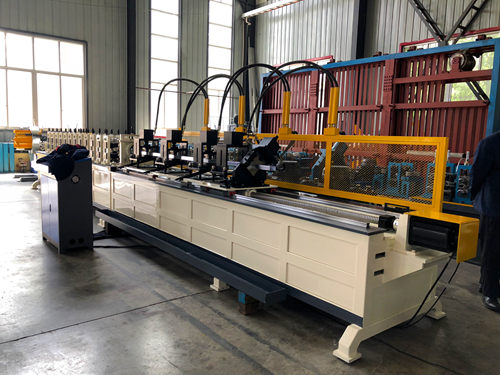
Understanding Roof Panel Machines A Key to Efficient Construction
Roof panel machines play a vital role in the construction industry by transforming raw materials into high-quality roof panels that are essential for modern buildings. These machines streamline the manufacturing process, allowing for increased efficiency and precision, which are crucial in a sector where durability and reliability are paramount.
At the core of a roof panel machine's technology is its ability to produce various types of panels, including standing seam, corrugated, and flat panels. The versatility of these machines enables manufacturers to cater to a wide range of architectural designs and roofing requirements. By adjusting the machine settings, operators can create panels in different widths, thicknesses, and profiles, providing customized solutions that meet specific project demands.
One of the significant advantages of using roof panel machines is the speed at which they can operate. With advanced automation and computer numerical control (CNC) technology, these machines can rapidly form and cut metal sheets to precise specifications. This not only reduces production time but also minimizes material waste, leading to cost savings for manufacturers and, ultimately, the clients they serve.

Moreover, modern roof panel machines are designed to be user-friendly
. Many come equipped with intuitive interfaces that allow operators to easily program the desired specifications. This technological advancement reduces the likelihood of errors during production, ensuring that each panel meets the required standards for quality and safety.In addition to efficiency and accuracy, roof panel machines contribute to sustainability within the construction industry. As builders and architects increasingly prioritize eco-friendly practices, the use of metal roofing panels produced by these machines provides several benefits. Metal roofing is highly recyclable, and its longevity reduces the need for frequent replacements, cutting down on resource consumption and waste generation.
Furthermore, the ability to produce high-insulation panels allows for better energy efficiency in buildings. Properly insulated roofs can significantly lower heating and cooling costs, making buildings more energy-efficient and comfortable for occupants.
In conclusion, roof panel machines are indispensable tools in the construction industry. They enhance the efficiency of producing high-quality roofing materials while supporting customization, sustainability, and energy efficiency. As technology continues to evolve, these machines will undoubtedly become even more advanced, further transforming the landscape of modern construction and paving the way for innovative roofing solutions. Whether for residential projects or large commercial buildings, roof panel machines are setting the standard for what is possible in roofing technology.